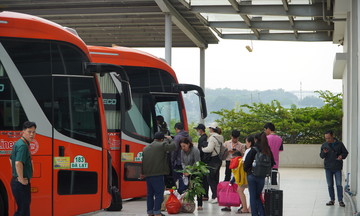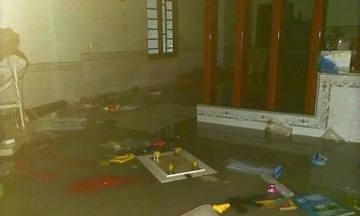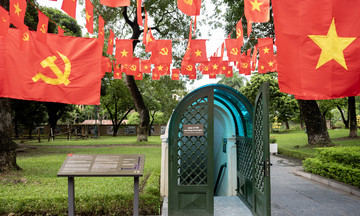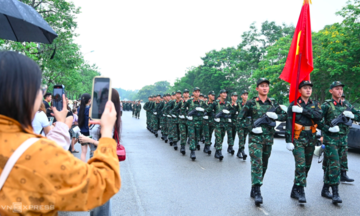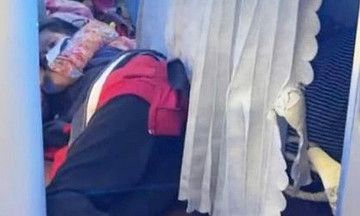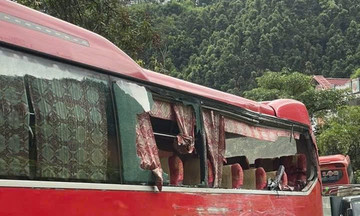While waiting for administrative procedures at Tan Dong Hiep ward, Vu Hiep was surprised to be offered free instant noodles, boiled eggs, cakes, tea, and coffee. A small sign at the entrance, "Self-Service Counter", indicated the area where these refreshments, along with a hot water dispenser and disposable utensils, were available for citizens who hadn't had breakfast or were facing long waits.
Hiep, who lives in Phuoc Long ward, nearly 15 km away, left early to handle a mortgage cancellation but got stuck in traffic. Upon arrival, he found a long queue at the land and housing counter. "As someone who works in services and travels frequently, this is the first time I've seen the government provide snacks for citizens," Hiep said.
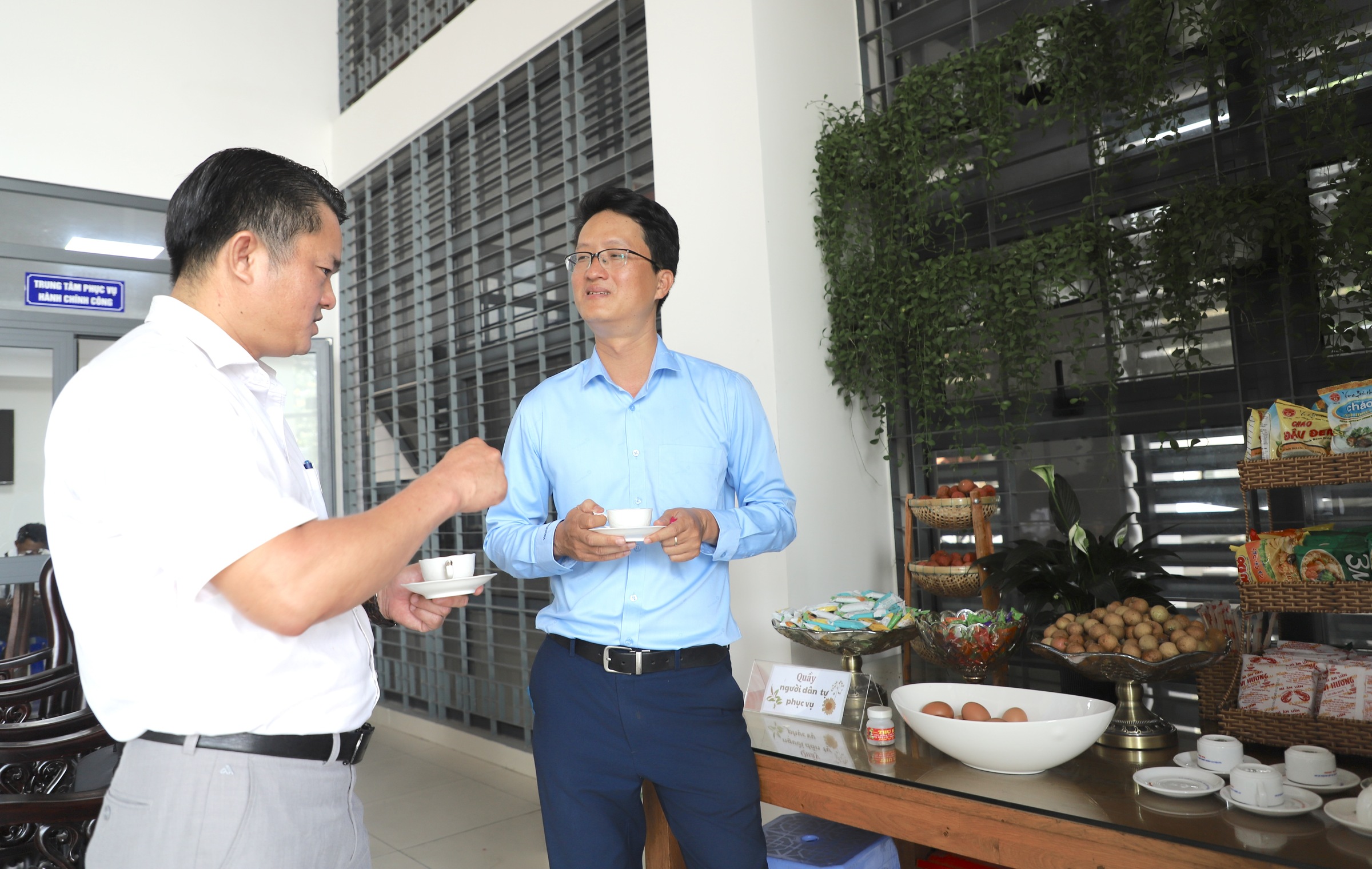 |
Vu Hiep (in green) talks with Vo Thanh Binh, Deputy Director of Tan Dong Hiep Ward's Public Administrative Service Center, at the tea and snack table on 22/7. Photo: Le Tuyet |
Vu Hiep (in green) talks with Vo Thanh Binh, Deputy Director of Tan Dong Hiep Ward's Public Administrative Service Center, at the tea and snack table on 22/7. Photo: Le Tuyet
Tan Dong Hiep is one of 10 wards formerly part of Binh Duong province that were merged into Ho Chi Minh City. It is now one of the wards providing free refreshments at its administrative center.
According to Vo Thanh Binh, the center's deputy director, the program began as a trial on 9/6 and was officially implemented on 1/7. The ward covers over 21 square km and has a population of over 100,000. Many administrative procedures are new, staff are still learning the processes, and citizens often travel long distances, sometimes with young children. Creating a welcoming atmosphere, therefore, is essential.
The daily cost of about 400,000 VND is covered through social contributions. "The cost is small, but the effect is significant. Citizens feel that the government is friendly and attentive, reducing stress during procedures," Binh said.
Nearly 20 km away, at Phu Nhuan ward's Public Administrative Service Center, Thuy Trang, 57, received assistance from a student volunteer, Le Khanh, 20, from the University of Finance - Marketing. Khanh helped her with online procedures, using VNeID, scanning QR codes, and making online payments.
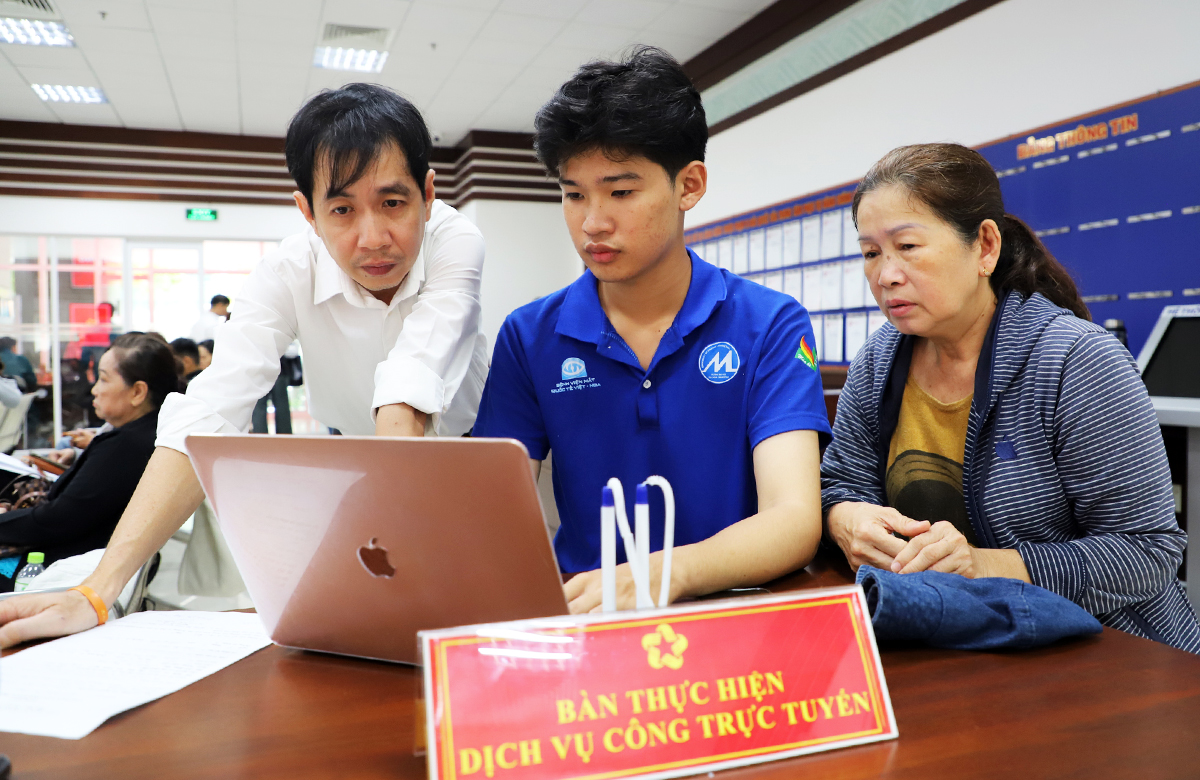 |
Le Khanh (center) and staff at Phu Nhuan Ward's Public Administrative Service Center assist Trang with online procedures on 23/7. Photo: Le Tuyet |
Le Khanh (center) and staff at Phu Nhuan Ward's Public Administrative Service Center assist Trang with online procedures on 23/7. Photo: Le Tuyet
That morning, Khanh assisted four people, mostly older citizens unfamiliar with technology or with outdated paperwork. "I don't know how to use a computer, so I'm very happy to receive such enthusiastic help," Trang said after completing her procedures.
Phu Nhuan ward has three online support desks with 3-5 volunteers and a specialist on duty. The center receives 200-300 applications daily, mostly for household registration, certification, and social welfare. Many procedures require online platforms, which can be challenging for some, especially the elderly. In addition to support at the center, the ward is establishing digital technology teams in residential areas, providing computers and volunteers to assist those without devices or technical skills.
According to Nguyen Thi Thanh Tram, the center's deputy director, this model not only saves citizens time but also improves the efficiency of administrative agencies, reducing the pressure of in-person applications.
Three weeks after the implementation of the two-level government model, many localities in Ho Chi Minh City have introduced initiatives to improve citizen services. Thu Duc ward's administrative center has deployed two receptionist robots to distribute queue numbers, guide citizens through procedures, and serve drinks.
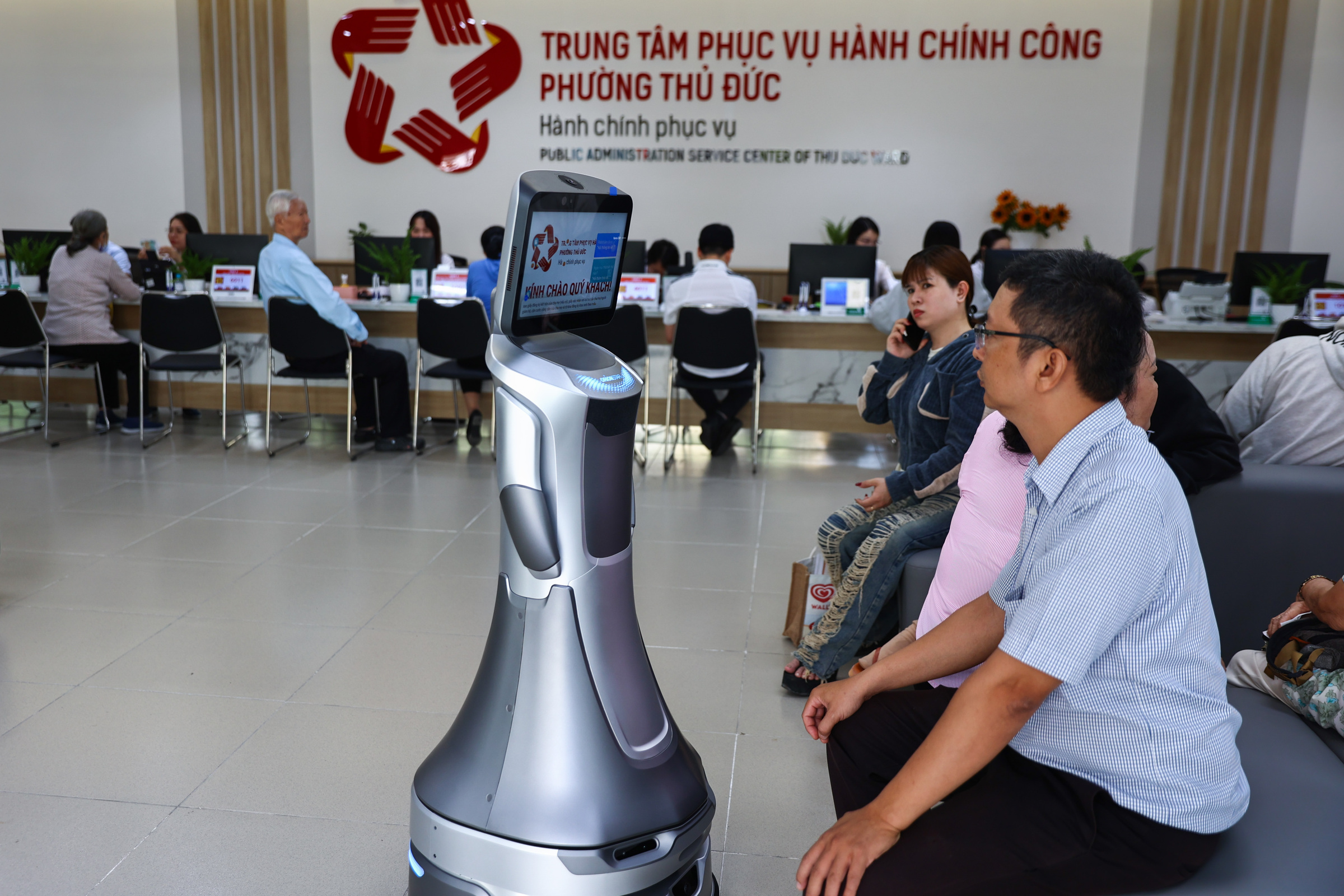 |
Receptionist robots assist citizens in Thu Duc ward, 7/2025. Photo: Quynh Tran |
Receptionist robots assist citizens in Thu Duc ward, 7/2025. Photo: Quynh Tran
Newly merged wards like Dien Hong and Tan My are making a positive impression with their spacious waiting areas and courteous, enthusiastic staff. Long Hai commune has implemented a "one-on-one" model, assigning volunteers and militia members to assist citizens with online procedures, form completion, and VNeID lookups.
Ho Chi Minh City also maintains 41 locations for receiving and returning administrative documents, including 38 area teams under the city's Public Administrative Service Center. Each team consists of five staff members from departments such as Construction, Finance, and Natural Resources and Environment. They handle city-level applications and support communes and wards in processing and providing guidance. The goal is to ensure seamless, uninterrupted service, aiming for a comprehensive, location-independent administrative model by the end of 2025.
According to Pham Thi Thanh Hien, Director of Ho Chi Minh City's Department of Home Affairs, despite these innovative approaches, some areas still face challenges, such as unclear jurisdiction, staff shortages, inconsistent software, and some officials clinging to old working habits. The city is reviewing and addressing these issues step-by-step to refine the model.
In the long term, Ho Chi Minh City will expand effective practices, promote digital transformation, improve inter-agency coordination, and continue staff training to build a modern, dynamic, and citizen-centric administration.
Le Tuyet




